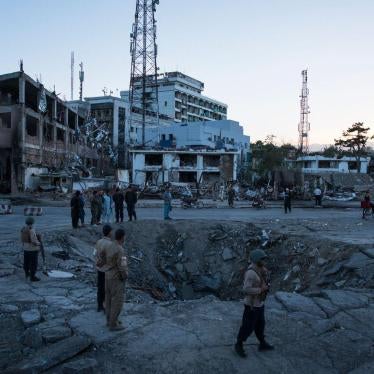December 6, 2022
Re: Urgent Need for Debate on Human Rights in North Korea
Your Excellencies,
We are writing to urge the UN Security Council to resume a formal session, open to the public and media, on the situation in the Democratic People’s Republic of Korea (DPRK) as soon as possible.
2023 marks the 10th anniversary of the creation of the UN-mandated Commission of Inquiry (COI) on human rights in the Democratic People’s Republic of Korea (DPRK). The commission’s report, issued in 2014, concluded that “the long-standing and ongoing patterns of systematic and widespread violations” of human rights in the DPRK “meet the high threshold for proof of crimes against humanity." The COI urged the UN Security Council to refer the situation in the DPRK to the International Criminal Court (ICC) and to adopt targeted sanctions against those who appear to be most responsible for crimes against humanity.
In line with the commission’s recommendations, which have been repeatedly endorsed by the UN Human Rights Council and General Assembly, the council added the situation in the DPRK to its official agenda and held debates three times in 2014-2017, during which the Office of the United Nations High Commissioner for Human Rights (OHCHR) provided briefings and North Korean defectors were invited to speak and relate their first-hand accounts of abuses and brutality they endured before their escapes from the country.
However, the council has failed to hold additional debates since 2018 and has instead only held closed consultations under the council’s agenda item of “Any Other Business” (AOB). And for the entire period since the COI report, the council’s other debates on issues related to DPRK’s nuclear weapons proliferation and related council sanctions have, with very few exceptions, included debate or mention of the government’s human rights record, even though many human rights issues are related to weapons proliferation issues, including the use of forced labor and the government’s failures to protect and fulfill basic human rights even as it spends billions of dollars on weapons development.
The council’s deemphasis on the DPRK’s human rights record since 2018 is deeply problematic. This inaction has sent an entirely wrong message to North Korean leader Kim Jong Un: that they have outlasted the scrutiny of the COI and can now continue committing grave violations against the North Korean people with impunity.
Since 2020, the DPRK has used the COVID-19 pandemic to effectively seal off a country that was already deeply isolated from the world and increase repression at the expense of the Korean’s people’s right to movement, freedom of information, right to access to food, medicine, and basic necessities. In August 2020, the Ministry of Social Security issued a shoot-on-sight order for those who make unauthorized entry into a 1-to-2 km wide buffer zone along the country’s northern border, mostly with China. Since 2021, the number of North Koreans escaping the country, which was once in the thousands yearly but had been decreasing over the last decade, has plummeted to less than 64.
Imports of items to North Korea have curtailed. The Law on Rejecting Reactionary Ideology and Culture, issued by the Supreme People’s Assembly in December 2020, prescribes the death penalty for distribution of media content from South Korea, the United States, and Japan and maximum 15 years imprisonment for simply watching them. The government has limited distribution of most food and essential goods and access to them has reportedly deteriorated sharply.
As a reminder, the UN General Assembly since 2014 has repeatedly urged the Security Council to debate the DPRK’s human rights record. At its most recent Third Committee session on 16 November 2022, the General Assembly encouraged the UN Security Council to “immediately resume discussion on the situation in the Democratic People’s Republic of Korea and invite the OHCHR to give a briefing to the Council.”
Debates during the council’s AOB framework, while welcome, are not sufficient to address the gravity and scale of the human rights abuses taking place in DPRK and the threat they pose to international peace and security.
We strongly urge council members to resume holding formal open debates in the council under a standalone agenda item, with briefings by relevant UN officials and witnesses, with consideration of what steps the council might take—including through a resolution—to compel DPRK to improve its record and its cooperation with UN mechanisms. Debates should include, as the General Assembly urged, discussion of whether to table a resolution to refer the situation in the DPRK to the ICC. In addition, as a general matter, council members should endeavor to better mainstream discussion of human rights abuses into the council’s scheduled debates on DPRK weapons proliferation.
Thank you for your attention to these matters.
Sincerely,
Elaine Pearson
Asia Director
Human Rights Watch
Sydney, Australia






